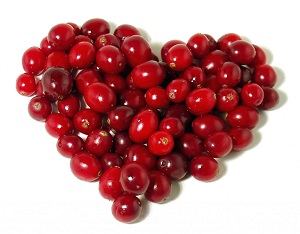
More evidence that low-calorie sweeteners are bad for your health
Studies show that artificial sweeteners can raise the risk of hypertension, metabolic syndrome, type 2 diabetes and heart disease, including stroke.

Natural Health News — Daily consumption of a low-calorie cranberry juice may help keep your heart healthy, according to a new study.
While the majority of the science supporting the health benefits of cranberries is for urinary tract health, a growing body of data supports the cardiovascular potential of the berries.
Now research from the US has found that 8 weeks of supplementing the diet with a cranberry juice, containing 173 mg of antioxidant phenolic compounds per serving, was associated with significant heart benefits, according to findings published in the Journal of Nutrition.
The small study assessed the potential of a low-calorie cranberry juice (sweetened with the artificial sweetener sucralose) to influence heart disease risk in 56 obese middle-aged men and women.
A healthy dietary intervention
The study participants were given either the cranberry juice or a placebo beverage twice per day for 8 weeks.
» Cranberries are rich in a wide variety of antioxidant compounds.
» Increases in blood levels of antioxidants after consuming cranberries can be measured objectively.
» Antioxidants in cranberries can reduce several risk factors for heart disease including blood fat and sugar levels and inflammation.
Results indicated that the cranberry juice lowered fasting serum triglyceride levels, C-reactive protein (CRP, an indication of inflammation) levels (44% lower than placebo), diastolic blood pressure (average of 2.4 mmHg lower), and fasting plasma glucose. The cranberry group also experienced improvements in insulin resistance, said the researchers.
These sort of changes are similar to what you might see with any healthy eating or lifestyle intervention leading the researchers to suggest conclude that: “Lifestyle characteristics, such as consumption of healthful food items, should be encouraged to improve health, reduce incidence of chronic disease and associated morbidities, and ultimately lower health care costs. Consumption of high-polyphenol products such as cranberry juice is a sustainable lifestyle practice that holds notable promise for improving health.”
The study was sponsored by Agricultural Research Service at the USDA and Ocean Spray Cranberries.
Blood sugar benefits too
Cranberries are full of antioxidants and other beneficial substances that help protect our body against inflammation and illness. Studies show that regularly consuming cranberry juice raises blood levels of important flavonoid and phenolic acid compounds such as quercetin and anthocyanins. Indeed the weight of data suggests that eating cranberries – whether in whole fruit or liquid form – raises your body’s levels of these protective compounds which may be have a role to play in cranberries’ heart healthy effects.
Previous research also bolsters the case for cranberries and heart health. For example, a 2013 study by scientists at the Mayo Clinic and College of Medicine found that two glasses of cranberry juice a day may protect against the development of hardening of the arteries.
While the researchers reported that no effect on the function of the cells lining the arteries (endothelial cells), cranberry juice did reduce the number of endothelial cells that produce a compound called osteocalcin, which has been linked to hardening of the arteries.
Diabetes is also a risk factor for heart disease and there is some evidence that eating dried cranberries with breakfast produced modest but notable beneficial effects in blood sugar compared to eating bananas.
For those wishing to avoid both sugar and potentially toxic sugar substitutes dried cranberries are a good option.

Please subscribe me to your newsletter mailing list. I have read the
privacy statement